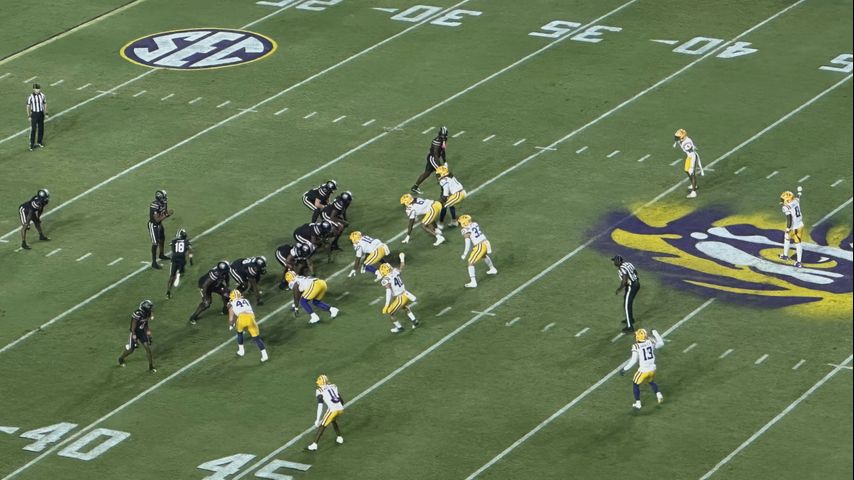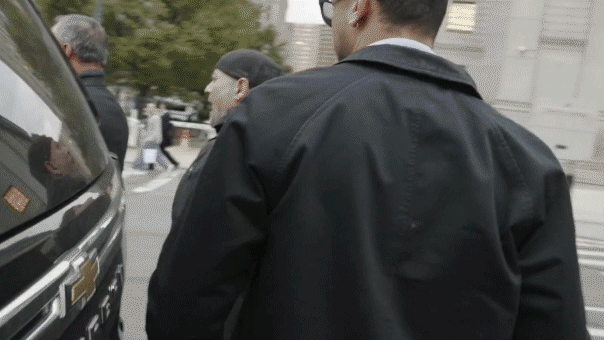Movie Reviews
Movie Review – If I Had Legs I’d Kick You (2025)

If I Had Legs I’d Kick You, 2025.
Written and Directed by Mary Bronstein.
Starring Rose Byrne, Delaney Quinn, Mary Bronstein, A$AP Rocky, Ivy Wolk, Mark Stolzenberg, Conan O’Brien, Manu Narayan, Danielle Macdonald, Eva Kornet, Ella Beatty, Helen Hong, Daniel Zolghadri, Josh Pais, Ronald Bronstein, Laurence Blum, Lark White, Amy Judd Lieberman, Char Sidney. Jodi Michelle Pynn, and Christian Slater.
SYNOPSIS:
With her life crashing down around her, Linda attempts to navigate her child’s mysterious illness, her absent husband, a missing person, and an increasingly hostile relationship with her therapist.
![]()
For Rose Byrne’s high-strung psychotherapist Linda, the sky is falling metaphorically and in a literal sense. She not only has a young daughter with an unspecified eating condition that requires a feeding tube in her stomach, creating a hole, until putting on a little more weight herself through solid foods, in which case the tube would be removed, with the hole instantly closing. In what is a more jolting jump scare than most modern horror movies offer, her ceiling has also caved in, leaving a gaping hole in her apartment.
And that’s not even the half of Linda’s problems in writer/director Mary Bronstein’s If I Had Legs I’d Kick You, where the rotten luck continues over multiple months yet is tightly edited together by Lucian Johnston in such a manner where time feels as if it doesn’t exist, with the concept of life presented as a series of cliff climbs where the only thing that’s there after reaching the top is yet another one to climb.
![]()
The closest thing to a free moment for Linda comes early on when she tries to enjoy a slice of cheese off of a massacred pizza (from being dropped on the sidewalk after picking it up, which also gives you another look at how everything that could go wrong is going wrong here), with a close-up of her face mid-chew and tiny pleasure for all of two seconds before her daughter (credited as Child and impressively played by Delayney Quinn) is calling for something from another room.
One other important detail regarding the presentation of Linda’s daughter is that it’s more of a disembodied voice. Yes, there are moments where a limb or article of clothing is caught in the background or in bed as Linda puts her to sleep while also changing the feeding tube liquids, but the idea here seems to be portraying parenting as hearing a voice that never stops, because it’s a job with no breaks. Then there is the creeping thought from Linda that maybe she was never meant to be a mom. It’s also a clever way around depicting a highly ill, if otherwise generally in good spirits, child in an emotionally manipulative gaze. It’s also sticking with Linda’s perspective, not only for the towering Rose Byrne performance, which runs the gamut of facial expressions, but also to maintain the feeling that a crushing weight is on her shoulders as a woman and a mother.
![]()
Keep in mind, Linda has to work with the problems of several other patients as a psychotherapist while barely holding it together herself. The film also offers a uniquely nuanced look at therapy, with at least one of Linda’s patients coming across as excitable, seemingly living a good life, yet wasting everyone’s time. Then there is Caroline (Danielle Macdonald), a mother obsessed with protecting her daughter to the point of sheer terror at the thought of leaving her child with a babysitter, having watched far too much true crime and fearing that whoever she leaves her baby with will be a murderer.
Despite Linda trying to work Caroline through some of these exaggerated thoughts into more rational thinking, there is also a fascinating juxtaposition, perhaps even a mirror, in that Linda finds herself looking at the same true crime story later, as worrying over the most unlikely scenarios is also part of being a mother.
![]()
With Linda’s demeaning husband away on a work trip (catching sports games while rudely and wrongly accusing her of having a life of rest, listening to “whiny” patients in between caring for their daughter), she and her child are staying at a nearby motel. During these nighttime scenes, it becomes evident that Linda isn’t exactly Mom of the Year, and that’s okay, because the point of this anxiety-ridden movie is the messiness and never-ending stress of parenting itself. Nevertheless, Linda has a bit of a drinking problem, which threatens to spiral into a drug problem as she makes the acquaintance of nearby cashier James (A$AP Rocky), striking a friendship.
Perhaps the real kicker in all of this is that psychoanalyst Linda has her own psychoanalyst in an unnamed coworker played by Conan O’Brien of all people, disappearing into a role that’s primarily stripped of comedy (although it would be fair to ascribe much of what happens here is nervous, nerve-racking comedy that’s not funny because of what’s happening, but more due to the amount of bad luck on display). It’s a dynamic that complicates the already complicated relationship between patients and therapists, further complicating it now with a woman refusing to take the advice she herself gives to most of her patients.
![]()
That’s possibly because what If I Had Legs I’d Kick You is getting at is that perhaps therapy isn’t always helpful if one doesn’t want to address what’s wrong with themselves first. Maybe Conan O’Brien’s psychotherapist does have valid answers, but Linda wouldn’t be able to put them to use anyway, since, in her mind, she is already a failure, and everything, including things that are impossible to be her fault, such as her daughter’s illness, is her fault. Having an unsupportive husband lacking empathy doesn’t help matters, either. Maybe most of all, Linda needs to find some way to help herself before she can ever help her daughter. Underneath all the manic energy and stress is a film that, even if every big swing doesn’t work, leaves so much to contemplate and grapple with; it’s like a hole that will never close.
Flickering Myth Rating – Film: ★ ★ ★ ★ / Movie: ★ ★ ★ ★
Robert Kojder
https://www.youtube.com/watch?v=embed/playlist

Movie Reviews
MOVIE REVIEWS: “The Smashing Machine,” “Good Boy,” “Bone Lake” – Valdosta Daily Times

“The Smashing Machine”
(Sports/Drama: 2 hours, 03 minutes)
Starring: Dwayne Johnson, Emily Blunt and Ryan Bader
Director: Benny Safdie
Rated: R (Strong language, violence and drug use)
Movie Review:
“The Smashing Machine” features Dwayne Johnson and Emily Blunt. The two previously worked together in “Jungle Cruise” (2021). Despite their performances show them giving their best, the narrative in which they exist is too repetitive.
A documentary titled “The Smashing Machine” (John Hyams) debuted in 2002. It detailed mixed-martial arts and UFC champion Mark Kerr and his incredible abundance of wins in the ring. Now, this movie focuses on Kerr’s life from 1997–2000, just after his successive winning streak comes to an end.
Kerr (Johnson) is accustomed to swift victories, but he becomes depressed after losing a match. His life becomes a downward spiral, leading to drug abuse. His only refuge is the love he has for Dawn Staples (Blunt) and his devoted friendship with fellow fighter Mark Coleman (former mixed martial artist, now commentator Ryan Bader).
At its best, “The Smashing Machine” shows that Mark Kerr was fighting in the ring and at home. Dwayne “The Rock” Johnson is playing a fighter, something not dissimilar from his WWE days as a pro wrestler. So the athleticism and nature of this role is something he’s familiar with, yet he still provides a relatively good performance. Emily Blunt plays his lover. She is talented and always on point, but her role appears slim here in many ways.
“The Smashing Machine” appears to be a product of the 1990s from a cinematography perspective. From there, it becomes something more modern for a biographical movie. It hits the highs and lows of person’s life in a tabloid form, meaning moments feel redundant at several points. The characters do the same actions too much. We see Mark Kerr fighting in the ring — quick bouts. Then, moviegoers see his arguments with his lover. The two of them are in a dysfunctional relationship. These two parts of the movie repeat far too often.
“The Smashing Machine” appears to be a product of the 1990s from a cinematography perspective. From there, it becomes something more modern for a biographical movie for nearly three-fourths of the runtime. It becomes a man’s quest to achieve despite obstacles, a triumphant sports underdog overcoming, but the latter 30 minutes becomes something more original.
Director-writer Benny Safdie (Adam Sandler movie “Uncut Gems,” 2019) pivots away from a typical biopic ending. He gives audiences a comeback story before taking it away and providing something more inquisitive to consider, while observing the real-life Mark Kerr living an everyman’s life.
Grade: B- (This smashes expectations.)
“Good Boy”
(Horror/Thriller: 1 hour, 13 minutes)
Starring: Indy, Shane Jensen and Arielle Friedman
Director: Ben Leonberg
Rated: PG-13 (Terror, bloody images and strong language.)
Movie Review:
“Good Boy” is a horror movie, where the leading character is a dog named Indy, a pet of director Ben Leonberg, who co-wrote this intriguing horror with Alex Cannon. This entire movie is told from Indy’s perspective. It is very good filmmaking, a throwback to classic horror with an original touch, its perspective from a canine’s viewpoint.
Indy moves with his owner Todd (Jensen) to the family’s rural home after the patriarch of the family dies. The place is rundown, and Todd in the process of renovating the abode. However, Todd is also sick, and when darkness comes at night, Indy bravely protects his master from a sinister presence.
Yes, a canine is the leading character and is more moving than many human counterparts in other horror-themed flicks. This is not new. “Strays” (2023) and “Dog” (2022) are also recent movies where canines are a central character. However, what is new is the fact that a dog takes the primary lead and all humans are secondary performers. Even more, “Good Boy” is a horror movie that is better than most in the genre.
Indy actually belongs to the director, Ben Leonberg in his directorial debut for a feature film. After “Good Boy” concludes, Leonberg details in a behind-the-scenes segment that he and his team filmed more than 400 days over three years. That time was worth it, and this movie is worth it for audiences. Indy is adorable and is the focus of this narrative. Humans are always obscured behind hunting masks, silhouetted, blurred, hidden in shadows, cropped from neck up or are barely reflected in mirrors or other objects. This creates some vagueness at moments, but audiences should keep in mind that events are from Indy’s perspective.
The result is something that has been missing from movies, especially horror movies for a long time. Leonberg and team share the art of taking one’s time to make a film an enjoyable art.
Grade: B+ (Good Movie.)
“Bone Lake”
(Thriller: 1 hour, 35 minutes)
Starring: Alex Roe, Maddie Hasson, Marco Pigossi and Andra Nechita
Director: Mercedes Bryce Morgan
Rated: R (Strong bloody violence, grisly images, sexual content, graphic nudity, strong language and drug use.)
Movie Review:
“Bone Lake” has an enticing start at least after the first five minutes. This is when William (Roe) and Cinnamon (Nechita), ‘Cin’ for short, arrive. They are a young, beautiful couple with model waistlines in abdominal muscles. They arrive at this very nice mansion, only to find Sage (Hasson) and Diego (Pigossi) already there, preparing for a few very romantic days.
The two couples decide to remain in the very spacious mansion at the same time. The mishap is an apparent mix-up by the owners who rent out the place for vacationers. Soon, lies, sex and videotape emerge and Sage and Diego find their relationship is tethering. Even more, the couples began to have their own little riffs with each other.
“Bone Lake” is a horror movie on the surface. It is advertised that way in all its trailers. This is a thriller with surprises.
That fact does not take away the entertainment value of “Bone Lake.” It is a seductive mix between a sensational soap opera episode and what seems like a romantic reality show for a moment. The problem is the writers were boneheads. They do not make the apex’s twist a more superior moment. Instead, the moment feels shallow, so audiences are left with a very violent slasher horror — albeit gratifying — for the last few scenes.
Grade: B- (Lake is nice for sailing, but it has some calcium buildup.)
Movie Reviews
‘Is This Thing On?’ Review: Will Arnett and Laura Dern Are a Delight in Bradley Cooper’s Warmhearted Flipside to ‘Marriage Story’

After a quarter century as a working actor, it’s hardly surprising that Bradley Cooper would be drawn for subject matter to the cathartic nature of performing and its effect on relationships. What’s less expected is that all three of his highly accomplished films as director have used that spark in such different ways. A Star Is Born explored the arc of a couple respectively experiencing the glow of the spotlight and the chill as it dims, while Maestro weighed the creative genius of an impassioned artist against the limited oxygen left for a uniquely complex love story.
In Cooper’s tenderly observed third feature, Is This Thing On?, performance is a rebound reflex, a therapeutic means of working through the end of a marriage and stumbling onto the self-discovery necessary to process what went wrong — inadvertently realizing that the foundations on which it was built remain intact. It’s an unassuming comic drama that sneaks up on you, its emotional honesty fueled by gorgeous performances of unimpeachable naturalness from Will Arnett and Laura Dern.
Is This Thing On?
The Bottom Line Soulful, funny and affecting.
Venue: New York Film Festival (Closing Night, Main Slate)
Release date: Friday, Dec. 19
Cast: Will Arnett, Laura Dern, Andra Day, Bradley Cooper, Christine Ebersole, Ciarán Hinds, Sean Hayes, Amy Sedaris
Director: Bradley Cooper
Screenwriters: Bradley Cooper, Will Arnett, Mark Chappell
Rated R,
2 hours
Inspired by British footballer-turned-comedian John Bishop’s personal story and written by Cooper and Arnett with Mark Chappell, the movie drops the bombshell of marital breakdown with a disarming absence of melodrama. “I think we need to call it, right?” says Dern’s Tess Novak, while cleaning her teeth before bed. “I think so too,” concurs Arnett’s Alex. Refreshingly, it’s a mutual decision that appears not to be pickled in bitterness but grounded in maturity and mutual respect.
Peeling away any superfluous connective tissue along with the preamble, the script picks up on Alex and Tess having an amicable get-together with their friends in Manhattan — long-married couple Christine (Andra Day) and Balls (Cooper), soon to be empty nesters, and gay newlyweds Stephen (Sean Hayes) and Geoffrey (Hayes’ real-life husband Scott Icenogle).
Only later when they sit on a Grand Central platform sharing a hash cookie and Alex absent-mindedly gets up to board the Metro-North train with Tess does it become clear that the couple is already living apart.
Slightly stoned and clearly in no rush to go home alone, Alex wanders into the Olive Tree Café in the West Village. To avoid paying the $15 cover charge, he puts his name down on the sign-up sheet for open mic night at the Comedy Cellar downstairs. After an uncertain start, he begins riffing with candor and self-deprecation about his divorce after 26 years with his ex, revealing that he’s living alone in a city apartment. Seemingly to his own surprise as much as anyone’s, his impromptu material gets laughs.
Skipping over the usual “breaking-the-news” scenes regarding Tess and Alex’s separation, the film focuses more on their adjustment and that of the people closest to them. The chief moments of revelation are those pertaining to Alex’s burgeoning stand-up career as he gains confidence and begins to feel a camaraderie with fellow performers — many of them played by New York comedy scene fixtures, adding immeasurably to the film’s fond sense of place.
The most poignant moment takes place in Alex’s car as he’s driving his 10-year-old sons (Blake Kane and Calvin Knegton) — not twins, but “Irish twins,” as he describes them on stage — back home after an overnight stay at his apartment. Disconcerted to find themselves and their mother serving as joke material in the notebook they discover beside their dad’s bed, the boys are confused, one of them particularly upset.
It’s a forgivable movie-ish contrivance to have Tess on a quasi-date (with Peyton Manning in an amusing appearance) wander into the Comedy Cellar by chance and catch Alex’s act, just as he’s sharing the unaccustomed sensations of sex with another woman for the first time in decades. He also confesses that it made him miss his ex-wife more, wondering what that’s about.
Arnett and Dern so fully inhabit their characters that nothing about that awkward encounter feels false. Instead, it uncovers mutual affection and attraction that have been dormant rather than dead, in a funny, sexy, kinda sorta reunion. There’s no swift solution to Tess and Alex’s problems as a couple, but there is a new willingness to talk about their frustrations.
Just as Alex finds a contentment that he’s been missing through stand-up, Tess returns to volleyball, a sport at which she excelled in her younger years, finding gratifying opportunities as a professional coach. While Alex’s stand-up evolution is the hook, the heart of the movie is their marriage. It’s to the filmmakers’ credit that rather than one man’s reawakening, it becomes a re-evaluation for both partners of the value and meaning of loving commitment.
The shifts in the central couple’s relationship are also echoed in different ways by the other couples around them. That includes Alex’s parents — his father Jan (Ciarán Hinds), a warm, sensitive soul with empathetic access to his son’s feelings; and the hilariously plain-spoken Marilyn (Christine Ebersole), who makes no apologies for the close friendship with Tess that she has no intention of severing.
Family scenes with the boys and their two big adorably lollopy dogs at home or at their grandparents’ place are so lived-in and natural — the defining strength of Cooper’s work with his entire cast — that we feel the pangs Alex feels in stepping away from that life.
The other chief marital comparison point is Christine and Balls, notably during an annual group weekend with Stephen and Geoffrey in a sprawling house in Oyster Bay, Long Island, where Alex and Tess sneak around to conceal the fact that they are, if not definitively back together, at least having sex. (A lovely interlude as the various guests wander down to breakfast while Christine gently sings “Amazing Grace” seems a direct nod to The Big Chill.)
In amusing intersecting scenes, Balls tells Alex that seeing him so happy has inspired him to ask Christine for a divorce. Christine, who has always been closer to Tess and a little prickly around Alex, tells him that watching him stagnate and lose his spark has confirmed her belief that marriage just doesn’t work.
This is a superb ensemble piece with a wonderfully loose, almost improv vibe and an emotional trajectory that rarely goes exactly where you might expect. Cooper’s grasp of the material is unerring, imbuing it with a sweetness that’s never cloying, a generosity of spirit that’s never unearned. And the film’s intimacy throughout is amplified in the frequent tight close-ups of cinematographer Matthew Libatique’s expressive visual language.
The movie gives the distinct sense of a quick, unfussy shoot with an easygoing sense of community — on the set, in the stand-up milieu and among Tess and Alex’s friends and family. Everything flows; nothing feels forced.
Cooper gets considerable humorous mileage out of his goofy stoner role, starting with a guffaw-inducing pratfall entrance involving an exploding carton of oat milk. But there’s no scene-stealing, just harmoniously synced ensemble work that makes us invested in all the connections orbiting around Alex and Tess, roles in which Arnett and Dern could not be better. Arnett’s comic timing is a given, but the actor finds previously unseen depths in the ache roiling underneath.
A scene in the Oyster Bay attic bedroom when Alex suggests a therapy exercise in which they confess the things they dislike about each other is both needling and perceptive in its insights into the give and take, the corrosive compromises, the pettiness that flares into resentment that can come to define a long-term relationship. But the script never gives up on Alex and Tess, and neither do we.
Without spoiling the outcome too much, it’s fair to say that although there are thematic overlaps here with Noah Baumbach’s exquisite Marriage Story, the tone and ultimate outlook are entirely different. It’s unlikely that any movie will ever use “Under Pressure,” the hit by Queen and David Bowie, with anything close to the searing emotional power of the Aftersun climax. But a performance of the song by the school band in which Tess and Alex’s boys play brings its own kind of joyous release to cap this soulful, satisfying movie.
Movie Reviews
Urchin movie review & film summary (2025) | Roger Ebert

A conversation early in Harris Dickinson’s excellent directorial debut “Urchin” (winner of the FIPRESCI Prize at Cannes this year) between protagonist Mike (Frank Dillane) and a guy he meets on the street named Simon (Okezie Morro) speaks of “a gap of empathy” in modern society. Dickinson’s nuanced character study closes that gap, but it does so in a way that’s never sentimental or manipulative. Inspired by tales of people on the fringe by Mike Leigh, Sean Baker, and the Safdie Brothers, “Urchin” stays committed to presenting Mike’s story without frills, recognizing that it’s just a tragically common one of a man spiraling down the drain of society.
Mike has been living on the streets for years, fighting a losing battle against his drug addiction. Shortly after Simon’s comment, Mike sucker punches him, steals his watch, and quickly pawns it for 40 bucks. He’s picked up shortly thereafter, forced into a nine-month stint behind bars. When he emerges, he’s clean and ready to start again, placed in a hostel for people reentering society, and even gets a job as a chef (cutly smiling as he practices saying “yes, chef” in just the right way). He’s a good employee, and he spends his days listening to motivational recordings that seem to be working.
The problem with Mike is that he retreats or explodes when faced with conflict. A customer complains about his steak at the restaurant, and he argues instead of capitulating. He clashes with a co-worker who admittedly seems to go on way too many breaks. And then a meeting is coordinated with him and Simon—one of those events designed to heal both of them—and the swirl of guilt on Dillane’s face is palpable. One can see that this is going to rattle him in a way that will send him spiraling yet again.
Dillane is jittery, unpredictable, and raw, but never in a forced Hollywood fashion. He plays discomfort incredibly well, sketching a portrait of the kind of guy who uses drugs and makes bad decisions in part because of how poorly he handles setbacks. It’s an excellent performance, one that fills almost every frame of the movie without being showy. It’s a humane portrayal of a person that feels consistently true instead of sentimental. Early in the film, we track water from a shower down a drain and into nature, illustrating how easy that is to do for some people. Broken systems let it happen, and temptation is more motivational than pre-recorded advice.
It helps that Dickinson proves himself an excellent director right from the beginning. Working with Bertrand Bonello’s regular cinematographer Josée Deshaies (who shot “The Beast” last year), he gives “Urchin” in uncluttered visual language that allows our eye to take in the entire moment without the sweaty close-ups that usually define tales of the homeless and addicted. We sit with Mike in these spaces, often presented in static camera shots or slow zooms like in a great scene in which Mike sings karaoke (“Whole Again” by Atomic Kitten, an inspired choice) on a couch with two co-workers, under a tiny mirror ball. We get the mundanity of the moment, but also get how much this brief burst of goofy happiness means to someone who has had too little of it in his life. Dickinson gets a little too aggressive with a score that uses chunky guitar to build tension in the final act when Dillane is good enough to sell Mike’s decline without it. Still, it’s a minor complaint for a screenwriter/director who makes so many smart choices with his first film.
Yes, there’s the influence of the kitchen sink dramas of Leigh & Loach, and the empathy of Baker, but the film that echoes the most through “Urchin” to this viewer is actually the one that announced Dickinson just eight years ago. 2017’s “Beach Rats” featured Dickinson’s debut performance and was an acclaimed leap forward for its filmmaker, Eliza Hittman. Dickinson clearly learned a lot on that set as both an actor and filmmaker because he captures with his own work why that movie was so successful: an understanding of the complexity of the human condition and a refusal to turn into melodrama. That drama was nominated for Best Male Lead and Best Cinematography at the Independent Spirit Awards that year. This one is deserving of the same—and maybe more.
-

 Wisconsin2 days ago
Wisconsin2 days agoAppleton Public Library wins 2025 Wisconsin Library of the Year award for distinguished service
-

 Vermont2 days ago
Vermont2 days agoFeds: Springfield dealer ran his drug business from Vermont jail
-
Virginia2 days ago
Match 13 Preview: #8 Virginia
-
Business2 days ago
Los Angeles Times Media Group takes step to go public
-

 West Virginia3 days ago
West Virginia3 days agoWest Virginia eatery among Yelp’s “outrageous outdoor dining spots”
-
Utah2 days ago
Bookmark this link for The Southern Utah Tribune e-edition
-

 Politics2 days ago
Politics2 days agoSpanberger refuses to urge Jay Jones to exit race, dodges questions after ‘two bullets’ texts
-

 Midwest2 days ago
Midwest2 days agoWisconsin ski park faces lawsuit after allegedly firing employee for sharing Bible verses on social media
















